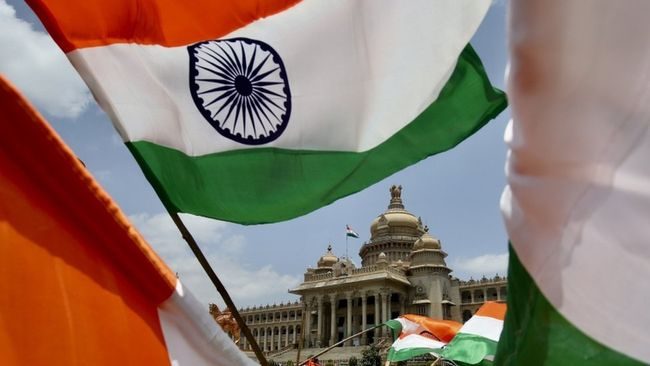A Step Towards National Identity and Heritage
In a significant move towards reaffirming its historical and cultural roots, India is considering the prospect of officially renaming the nation to "Bharat." This decision is steeped in the country's ancient heritage and aims to foster a stronger sense of national identity and pride among its citizens.
 |
| India in Hindi is Bharat with the official name Republic of India is a federal state with a parliamentary system in the form of a constitutional republic in South Asia |
The name "Bharat" has deep-rooted historical significance, tracing back to ancient Indian scriptures and mythology. It is derived from the Sanskrit term "Bharata," which is associated with a legendary king in Hindu mythology and one of the oldest civilizations in the Indian subcontinent.
Renaming the country as Bharat is seen as a step towards embracing its rich cultural heritage and fostering a sense of unity and pride among its diverse populace. India is a mosaic of languages, cultures, and traditions, and the name Bharat unites these diverse elements under a common historical and cultural umbrella.
Proponents of this change argue that Bharat, being a name rooted in the country's past, aligns with the sentiments and aspirations of the Indian people. It signifies a connection to the land, its ancient civilizations, and the legacy of its forefathers. This name change could lead to a sense of collective belonging and reverence for the nation's illustrious past.
 |
| Residents rejoice and wave the national flag at the festival |
However, critics raise concerns about the practical implications of such a change, including the administrative and logistical challenges associated with altering official documents, international relations, and global recognition. Additionally, the linguistic diversity within the nation may pose challenges in incorporating a single, widely accepted term across all regions.
To mitigate these concerns, advocates of the renaming proposal emphasize the importance of a gradual and inclusive transition, ensuring that the change is implemented in a manner that accommodates linguistic and regional variations. Furthermore, they stress the significance of educating the public about the historical and cultural roots of the name Bharat to foster acceptance and understanding.
 |
| Indian Prime Minister (Narendra Modi) gave directions while attending a discussion forum |
In conclusion, the proposal to rename India as Bharat represents an effort to reaffirm the nation's historical and cultural heritage. While challenges and debates accompany such a significant change, embracing this ancestral name has the potential to strengthen the sense of national identity and unite the diverse population under a common, historically rooted nomenclature. Only time will tell how this initiative will shape the country and its citizens, binding them closer to their rich and diverse cultural legacy.
#IndiatobeRenamedBharat #india #bharat #bollywood




Comments
Post a Comment
More Articles